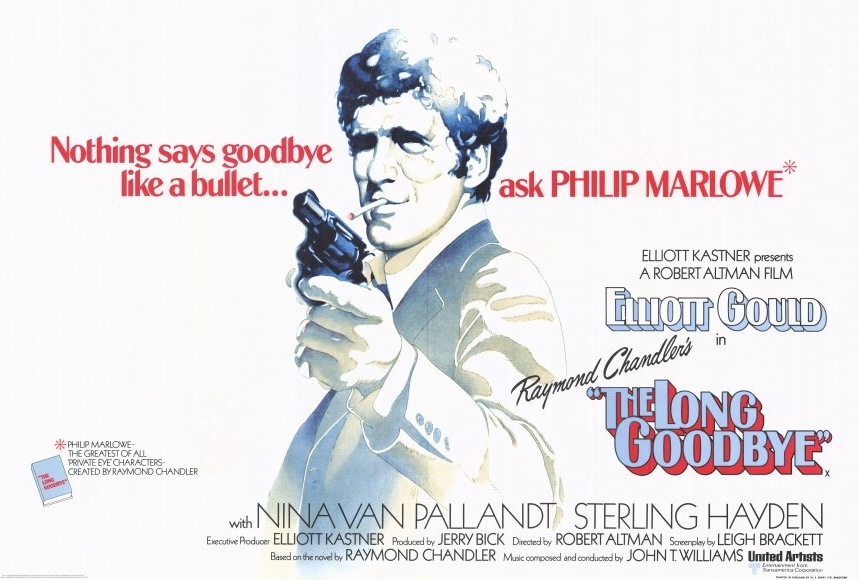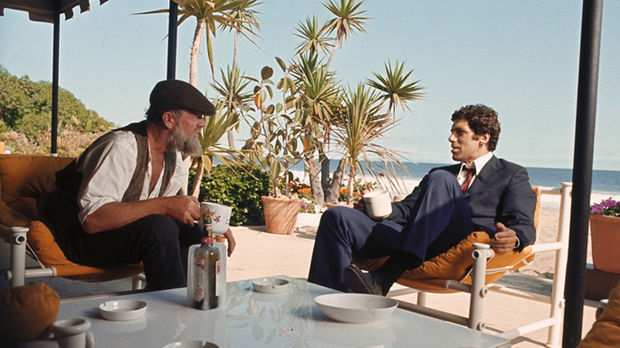1973 Look Back: Robert Altman's "The Long Goodbye"
 Tuesday, July 22, 2014 at 1:16PM
Tuesday, July 22, 2014 at 1:16PM We're giving 1973 some context as we approach the Smackdown. Here's Matthew Eng on an Altman film.

There’s an unmistakable sense of nostalgia that permeates Robert Altman’s seldom-seen 1973 neo-noir The Long Goodbye, an air of reminiscence highlighted by the film’s title track, a nifty, pliable, lovelorn little number composed by John Williams and Johnny Mercer that gets incorporated endlessly throughout the movie, evoking sporadic familiarity, even though we rarely hear the same version twice. It transforms itself, from scene-to-scene, into a flimsy piece of supermarket Muzak, an ivory-tickled barroom ditty, even a castanet-laden flamenco. It’s a caressing torch ballad one moment and a marching band’s funeral hymn the next. The song, in all its reimagined incarnations, continually threatens to embed itself into the viewer’s mind, but just as quickly eludes any tighter hold. It’s as though the film, in its own increasingly weary, tumbledown sort of way, is nostalgic for the tune, longing for something that comes back but is never the same.
It’s telling of Altman’s intentions that the film forsakes any other discernible music apart from this titular track, save for the classic, semi-satiric “Hooray for Hollywood,” which opens and closes the film. The Long Goodbye may be based on an eponymous Raymond Chandler novel, centered around a character made legendary by Bogart, and hitched to an entire history of early noir filmmaking, but it is not a mere, Body Heat-like retread. And although there may be obvious admiration and even some slight affection for the genre in all of its former, mannered glory, it’s certainly not a love letter.



